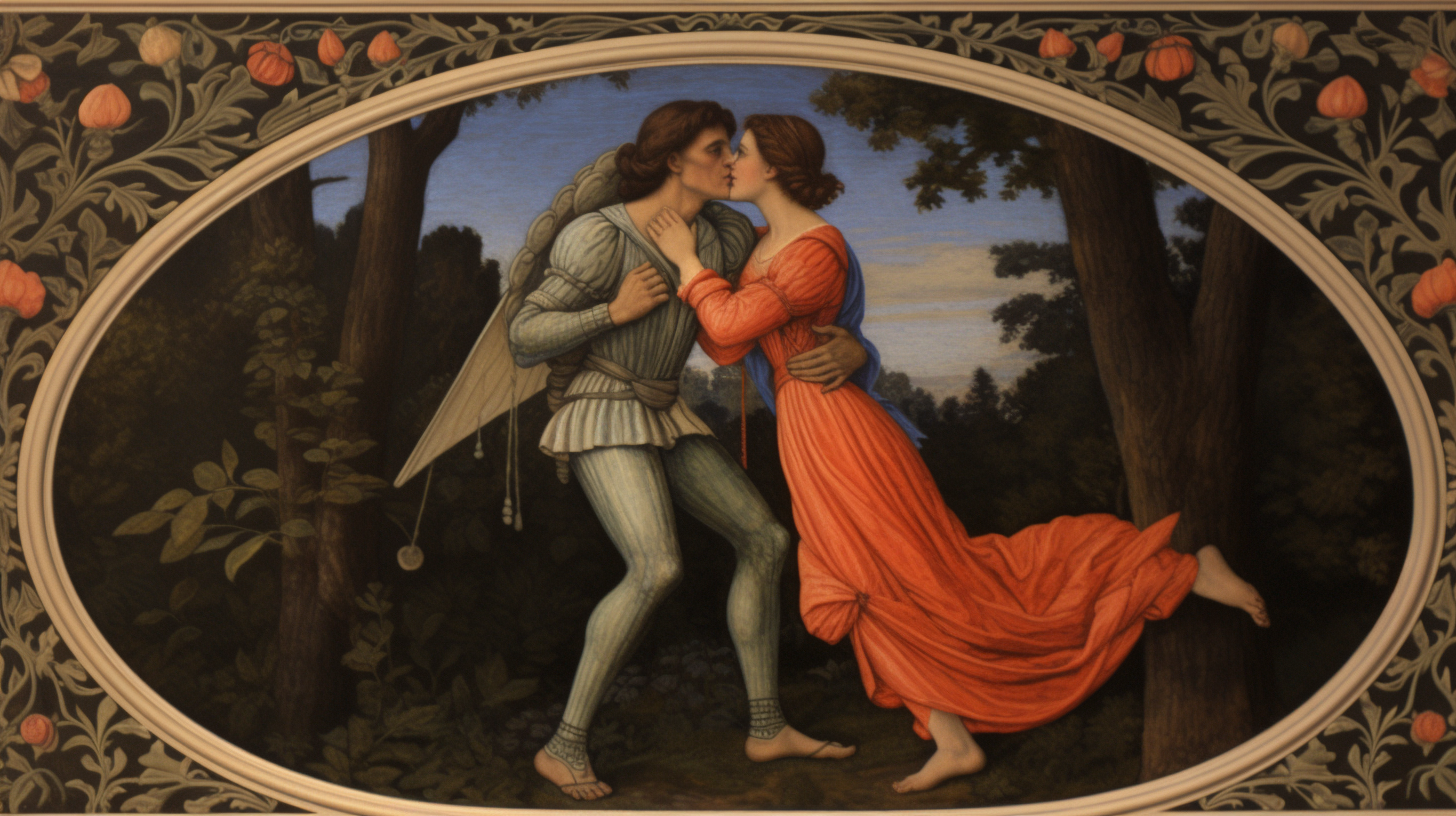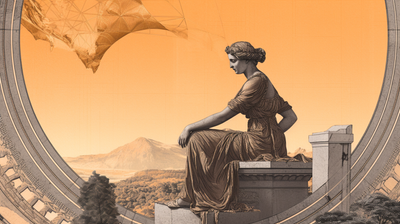The Philosophy of Love: Eros, Philia, and Agape in Ancient and Modern Contexts
Love, an ethereal force that permeates the human experience, has fascinated and confounded philosophers, poets, and thinkers throughout history. The ancient Greeks categorized love into three distinct forms: Eros, Philia, and Agape. Yet, as we delve into the depths of these concepts, we must shed the rose-tinted glasses of romantic idealism and embark upon an unapologetic exploration of their nature, shedding light on their historical contexts and critically challenging the conventional wisdom surrounding them.

I. Eros: The Tragic Seductress
Eros, often portrayed as the epitome of romantic passion, has long been romanticized as an all-consuming force. However, a more critical examination reveals its darker side. Eros, derived from the Greek word for desire, embodies a primal and often irrational craving. Its fiery intensity can ignite a whirlwind of emotions, leading individuals astray from reason and logic.
Historically, the influence of Eros can be observed in the tragic tales of antiquity. From the ill-fated romance of Paris and Helen, which sparked the Trojan War, to the downfall of Antony and Cleopatra, Eros has proven to be a potent catalyst for chaos and destruction. This inherently selfish form of love is driven by the pursuit of pleasure, often disregarding the consequences it may inflict upon others.
In the modern context, Eros has become the centrepiece of commercialized love, commodified to sell products and perpetuate a consumer-driven society. It has been reduced to fleeting infatuations and shallow relationships fueled by a passion that wanes as quickly as it ignites. Our obsession with Eros has led us to neglect the deeper connections and enduring values that love should embody.
II. Philia: The Resilient Bond
Contrary to the transient nature of Eros, Philia represents a form of love rooted in friendship and companionship. It is a bond based on mutual respect, shared values, and the pursuit of common goals. Philia fosters trust, loyalty, and genuine affection among individuals, and its strength lies in its ability to withstand the test of time.
Throughout history, Philia has played a pivotal role in shaping society. The friendship between Socrates and Plato served as the foundation for philosophical inquiry, leading to the birth of Western thought. The camaraderie among the United States Founding Fathers laid the groundwork for a democratic nation. With its focus on collaboration and intellectual exchange, Philia has consistently proven itself as a force for progress and enlightenment.
In our modern age, however, the value of Philia has been undermined by an individualistic culture that prioritizes self-interest. Moreover, the rise of social media and virtual connections has created a shallow substitute for true friendship, as we prioritize the number of online links over the quality of real-life relationships. To reinvigorate the spirit of Philia, we must rediscover the essence of genuine companionship, fostering deep connections based on shared values and meaningful interactions.

III. Agape: The Selfless Embrace
The highest form of love, Agape, transcends personal desires and encompasses universal, selfless compassion for all living beings. It is unconditional love that seeks the well-being of others, even in the absence of reciprocation. Agape calls upon individuals to rise above their egos, embrace a broader perspective, and recognize the interconnectedness of all humanity.
In ancient times, the concept of Agape emerged in various religious and philosophical traditions. Early Christians emphasized the importance of self-sacrifice and love for one's neighbour as a fundamental tenet of their faith. The teachings
of Buddha emphasized compassion for all sentient beings, regardless of their circumstances. Agape, in its purest form, challenges societal divisions and fosters a sense of empathy and unity.
Regrettably, in our modern world, the concept of Agape is often overshadowed by self-interest and indifference. We witness global crises that demand collective action, yet our response is often fragmented and inadequate. Agape requires us to break free from the shackles of apathy, embrace our shared humanity, and act in the best interest of the greater whole.

Love, in its multifaceted forms of Eros, Philia, and Agape, offers us a prism through which we can understand the complexities of human relationships. By challenging conventional wisdom and exploring their historical contexts, we uncover the imperfections and limitations of each form. Eros, with its seductive allure, demands caution and moderation. With its enduring strength, Philia calls for reevaluating our priorities. Finally, Agape, with its selfless embrace, urges us to confront our indifference and prioritize the well-being of all.
To truly grasp the essence of love, we must transcend the realm of emotions and critically examine its philosophical underpinnings. By doing so, we can redefine and reshape our understanding of love, reclaiming it from the clutches of commercialism and individualism. When approached with a commitment to its transformative power, love can shape our personal lives and the fabric of society itself.

Plato Re-Imagined
This course offers 32 comprehensive lectures exploring most of Plato's dialogues. These lectures guide students toward a consilient understanding of the divine—a concept that harmonizes knowledge across disciplines and resonates with secular and religious leaders. As a bonus, Lecture #33 focuses on consilience, demonstrating how different fields of knowledge can converge to form a unified understanding.






